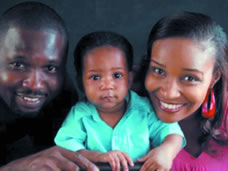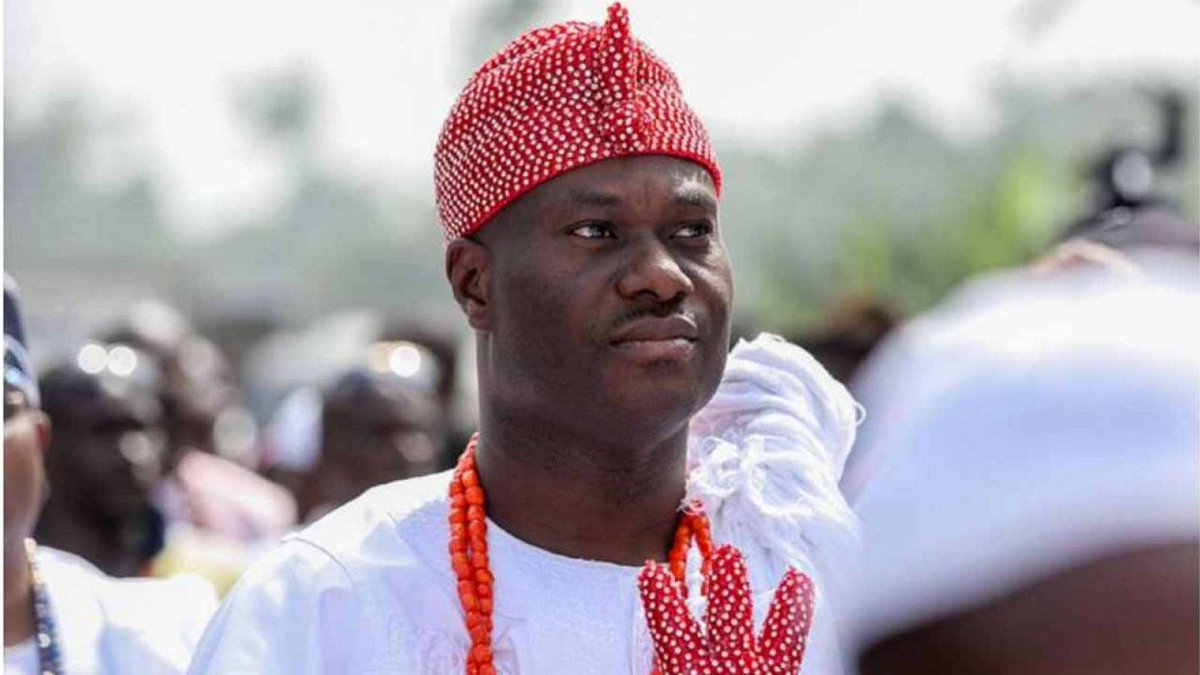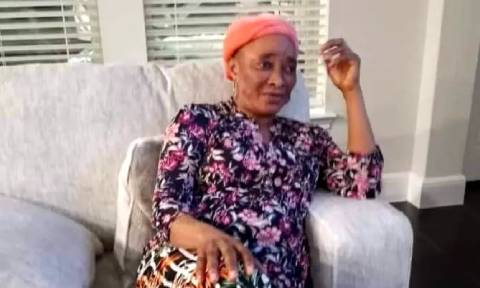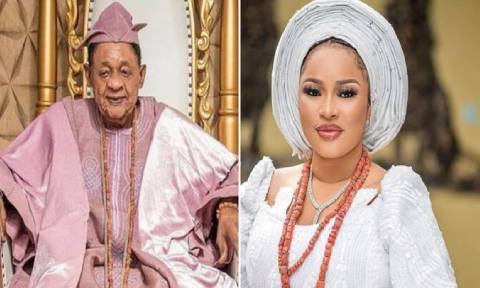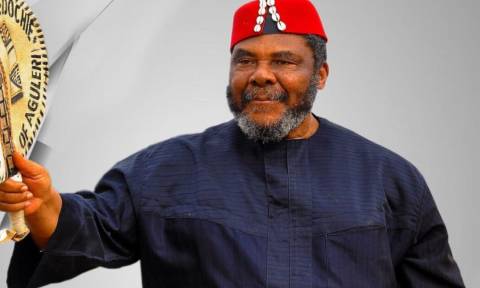National Woman Leader of the Peoples Democratic Party (PDP) and former Minister of Women Affairs, Hajia Inna Ciroma, answering questions on women’s participation in politics, concludes that the country gains by encouraging women’s participation and asserts that husbands can have no good reasons not to let their wives venture into politics.
You told women during a recent conference to stop singing and dancing for men at political rallies. It became the catchphrase throughout that conference. Would you eleucidate on that stance for the benefit of our readers?
It has long been that each time there is a gathering, political or social, it’s women who entertain the men. Why can’t men entertain themselves? Why should it always be women who entertain men at political rallies? Men organize women to amuse them at rallies. When the time for election comes, they go to houses to get out the women to vote them into offices. But when we say we want offices, the mood changes. We are saying no to this. We deserve progressive roles and we want progressive roles. We are asking to be taken seriously. Enough of the singing and dancing and clapping. We want to be where decisions are taken. When men are forming political parties, they should know that we have brains. They don’t invite us to such meetings but it is when they want to do a rally that they know we exist. Men should regard us as partners in progress. We are not asking to displace them. In my house, my husband is the boss. It is so in every respectable home. We won’t take from men what is theirs. We are just asking to be treated fairly.
To what extent are men to blame for the situation you are criticizing?
There is much talk of equity for women in national affairs. Equal participation with men is widely accepted as the kernel of rights and laws in favour of women but men who dominate the scene in Nigeria lack the willpower or even willingness to implement them. I am happy that the First Lady (Dame Patience Jonathan) has taken the baton by herself. She is opening avenues for women to raise their capacity. When we say allow us, men say ‘who is holding you?’ Maybe you are not holding us but there are hurdles.
Could you explain? What are the hurdles?
‘The place of a woman is in the home, she shouldn’t be out there,’ that kind of talk. We have passed that stage. We know a woman has a responsibility to manage the home and she does that. If she is a civil servant, a woman who is a permanent secretary; she is as busy as the minister, but she manages the office as well as the home very well. Should we lose her skills because she is a woman? Another thing: men don’t like to invest in a woman politician, good as she may be. They think she is a misplaced priority. Men should have the open mind to promote women as they promote men. Also, some of the barriers come in the form of a mindset of the men against women. Some men just feel that a woman should not lead them. And this is not peculiar to Islam. Some male Christians are as unyielding to the interest of women politicians as fundamentalist male Muslims are. But this is not the case all over the world. In many Islamic countries, women get the opportunity to thrive in politics. Women play very strategic roles in Pakistan and Bangladesh. Iran today has 46% women in the parliament. If we can’t have 50-50 with men in Nigeria, we can start from 30, 35%. I also ask women to be serious. Men give them N200 and they are happy to sing and dance. Men who dole out such peanuts collect millions themselves. It’s painful.
In politics, women have long been said to be part of their own problem. Do you not think so?
The pull-down syndrome is no longer there. A recent cheering testimony to this was a revelation of an AMAC council chairman candidate in the last FCT council election who said at a conference that a woman mobilised N30million for her to run her campaign. In any case we are not saying that all women must support only women. Support women if they are good. If a woman is believed to be capable of the position she is seeking, why deny her your vote just because she is a woman? We should be open. There should be no gender bias.
You talked about cultural inhibitions. Is it just cultural? Some men fear that letting their wives into politics could mean the end of their hold as the husband.
There will be instances when certain women could betray their husbands, but to start with, what makes politics so different from other endeavours? When I say something about supporting women who are suitable, I include women who respect their womanhood and will not trade it for anything. I won’t encourage anybody to trust women who are wayward. On the other hand, if you trust your wife enough to let her work in an office in the public or private sector, why shouldn’t you trust her to take active part in politics? If you are a businesswoman, you will go out and interact with men; if you are an office worker, you will work with men; if you are a trader, you will mix with men. What makes politics so different? If you don’t trust your wife, you won’t trust her even if she doesn’t go out at all. Trust should be mutual, anyway. If a woman trusts her husband to go out and mix with the world and come back home, why shouldn’t men trust their wives with similar freedom?
You said women have changed from being indifferent to supporting their likes. Can we expect women to use their numerical strength to vote large numbers of their own into offices when elections start next year?
Yes. We are four years wiser now. It’s what we have started doing. We’ve been meeting people and speaking to all that we should speak to and we are raising awareness on the need for us to be charitable to those among us of proven ability who want to occupy offices of responsibility. The challenge is to men too. There is need for more women in appointive and elective positions. Appointive positions are easy to fill. Those in the position to appoint can just appoint. Either way, we are asking for enabling clauses to provide for an equitable pattern and ease the process for the womenfolk. We need to increase the number of women in appointive and elective offices in 2011. Nigeria needs to be seen as complying with international best practices. If we can do that, we will be able to say we are carrying our women along and providing equity and fairness to them.
You said something about being four years wiser. How?
If you check the pattern from 1999, you will see that we’ve increased our numbers steadily from one election year to the next, the intervals being four years each. The improvement hasn’t been dramatic. It’s been too gradual to be good enough. It can be much better. Out of 109 senators we have only eight women. It’s too poor. We will be four years wiser by 2011 and should get a lot better.
You talked about changing clauses in the laws to ease the climb to political influence by women. What have you as women leaders done in that regard?
We made proposals to the Uwais Electoral Reform Committee and they accepted a good number, but the report has not been accepted by government. The recommendations would have taken care of most of the concerns of women if they had been accepted and implemented. But we are not daunted. If we don’t have what we need in the statute books, we can as well get our political parties to implement them. It’s human actions essentially. If a political party says ‘hei,’ we must have a female deputy governor, one senator and at least three or four members of the House of Representatives in every state, don’t you think it will be great? How does the party do it? It can be zoned. It can be said that this senatorial zone this year, must get a qualified woman to go to the Senate, the next election another zone would get a woman and there it goes round. Done that way at the various levels, you will see women coming out. That will be good for the country.
You are the woman leader of the governing party at the federal level and in most of the states. Are you doing something to get your party to lead by example?
The constitution of my party says 15% should be reserved for women, both appointive and elective offices, but this is not being followed.
Why?
Political will on the part of those who should ensure its implementation at the various levels. It would also be that women are not sufficiently asserting themselves. Many factors come to play, so it is difficult to tie it to any single cause. You know that the positions within the party are zoned. The national chairman has to come from the South East. A woman contested with Ogbulafor and other men in the process who produced Ogbulafor. A woman contested and I doff my hat for her. At least she realised that the rule didn’t say the one to come from that zone must be a man. Women should offer themselves. They should be bold enough to stand against men for elections at all levels.
As the PDP Woman Leader, are you using your office to mobilise women for 2011?
Yes, we are organizing zonal rallies. We have done the rally in three zones: South South, North East and South West. The rallies are meant to organize women and get them ready for 2011

